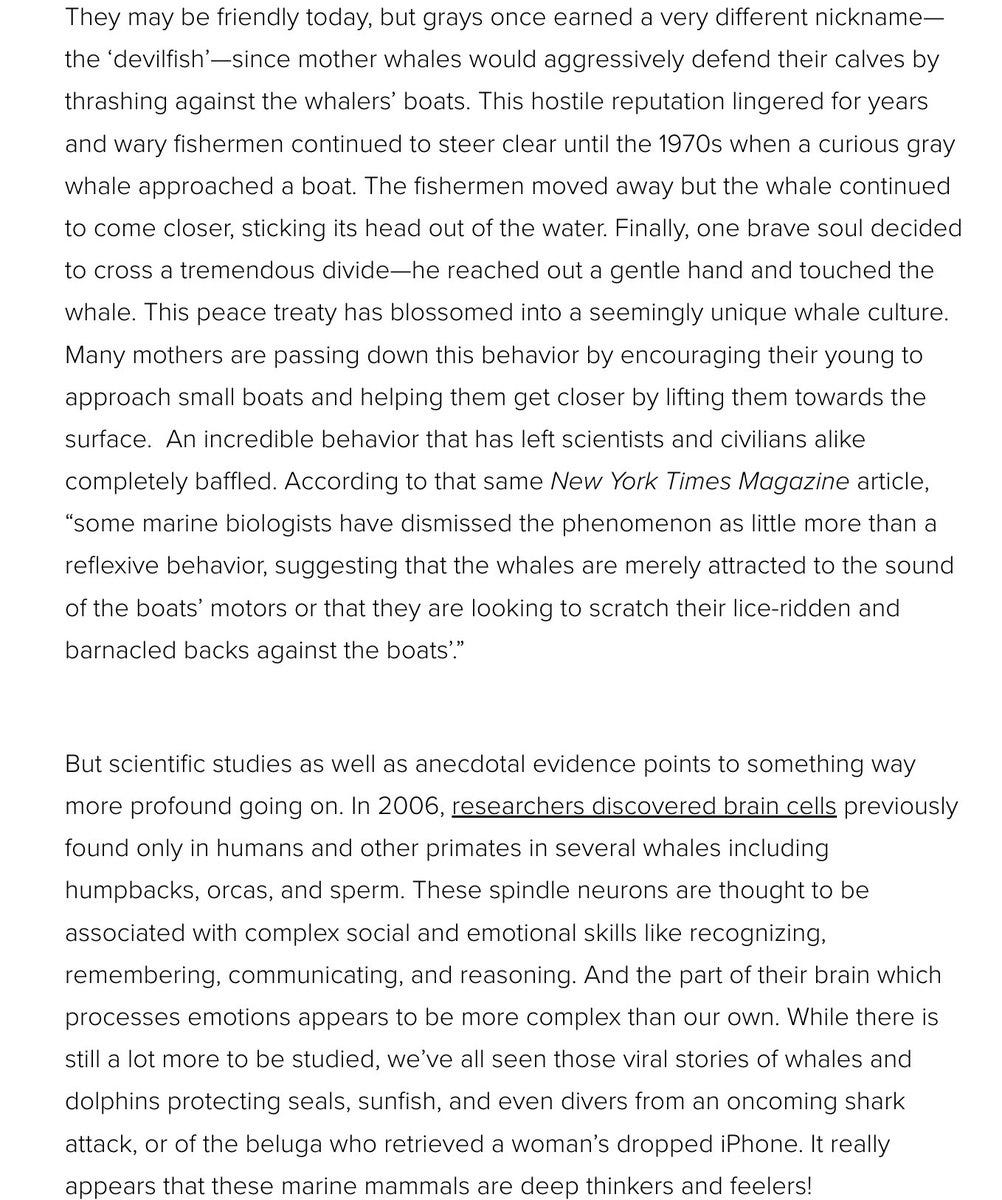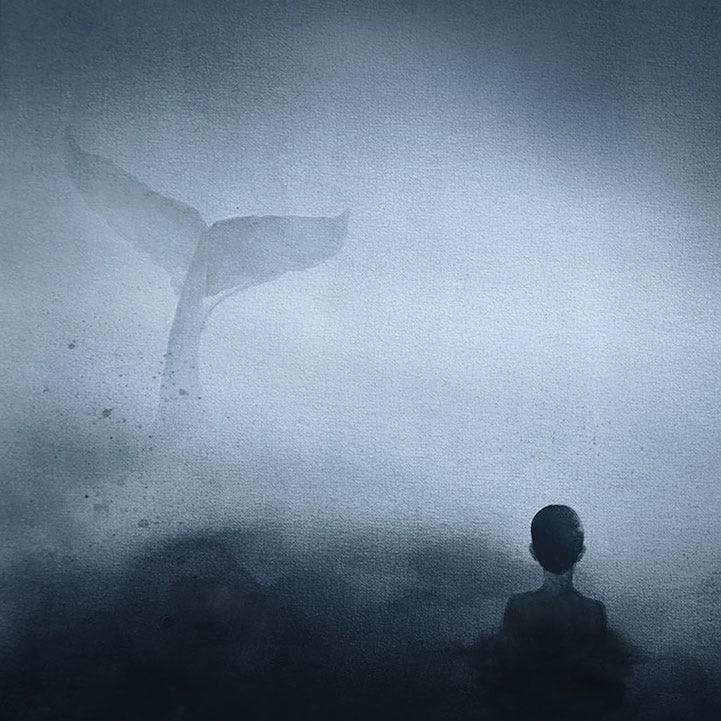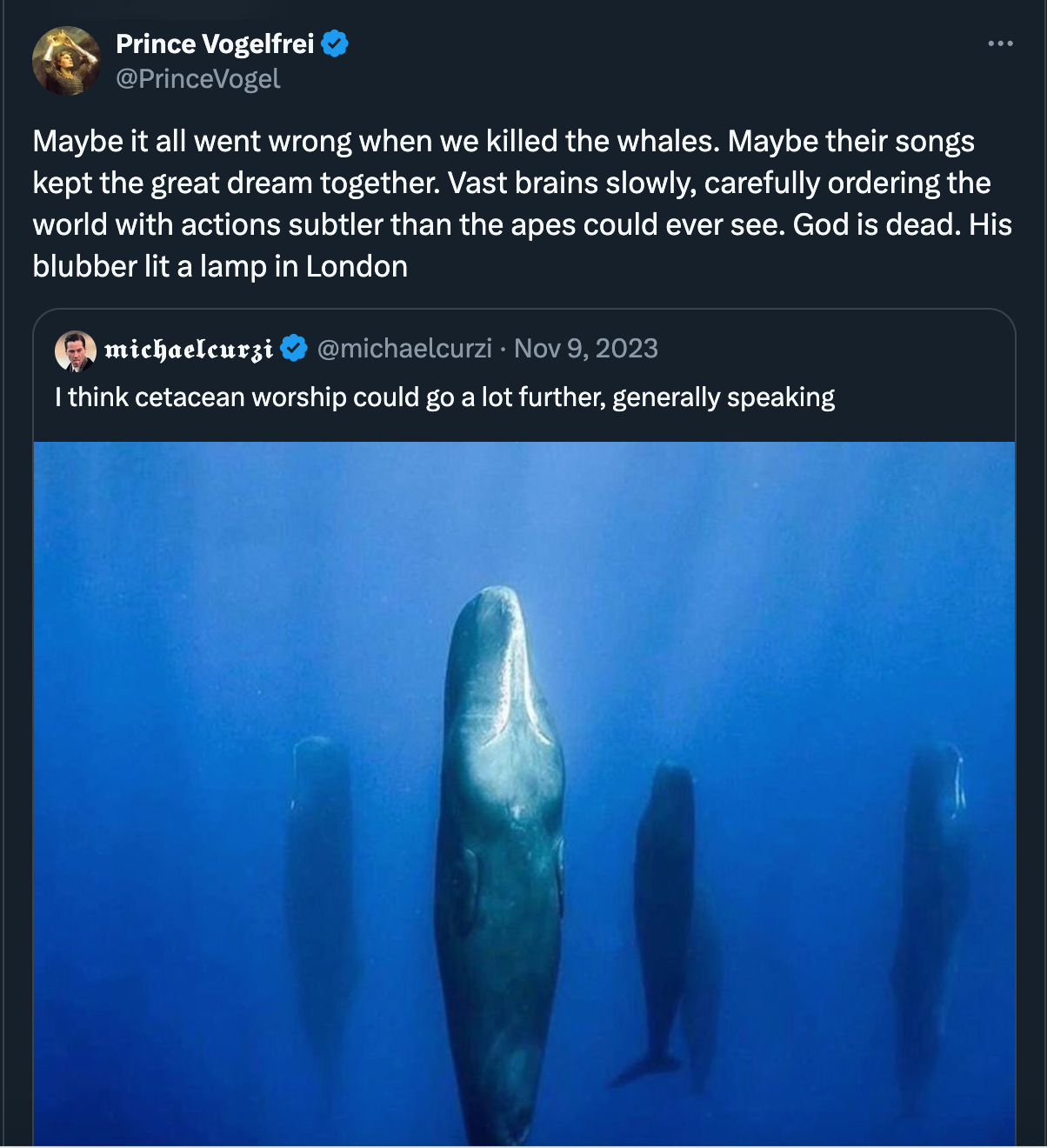Maybe Their Songs Kept The Great Dream Together
The message is simple if we're willing to hear it
I read recently that scientists are in the nascent stages of trying to harness AI to allow humans to speak to sperm whales. The thinking is that, if the clicks and codas that these creatures use to communicate are dumped into a language-learning neural network and contextualized, that we might be able to recode those sounds into messages we’d want to send the whales. A way to finally communicate with our distant deep-sea relations.
My skepticism at this program’s viability is overwhelming. This is, in large part, due to my experiences confronting the outputs of these “language learning” tools. Every week I am handed new papers that use PhD vocabulary to paper over a black hole of meaning, like a thesaurus vomited on the page. Never has an instrument been more perfectly calibrated to use the English language to say absolutely nothing. If this is the kind of sophistication with which we are going to try to breach the species communication barrier, well. Good luck with all of that.
Even those excited by the prospect, speaking of the whales’ limits, accidentally reveal their own:
We don’t know that their minds are able to parse complex statements. A sperm whale’s brain is up to six times larger than ours, and its cerebral cortex is more labyrinthine. But that doesn’t necessarily make its thinking as intricate.
Imagine being presented with evidence of a brain of that size and complexity and still believing the most likely shortcoming is there, rather than within ourselves.
Anyway, I am also filled with dread at this prospect because as a species we, despite our stated goals, have never been particularly good at listening to the messages we do receive, even when those messages come in impossibly loud and clear. Take the gray whale, for instance:

If whales have been trying to deliver us any kind of message, it appears to be an overwhelmingly simple one: stop killing us, if you ever hope for our relationship to change. Moby-Dick was loosely based on a true story: the sinking of the Nantucket whaleship Essex by an enraged bull sperm whale that rammed her until she sunk, sending her crew adrift in lifeboats until they resorted to cannibalizing those who died of starvation. Yet still we persisted.
Was any character ever created so presciently as Ahab? Can any villain better represent the American spirit here in 2024 than a 19th century madman, whose enduring motivation was a hatred for an enemy that he would have never encountered had he not set out, unprovoked, to kill that same enemy for his oil? An enemy that he hated for having the gall to wound the executioner while surviving the execution? Melville’s is the Great American Novel for many reasons, but perhaps none so compelling as its prediction of our present state of affairs. I’m reminded of a retort I first heard about the invasion of Iraq: They’re fighting for our freedoms? What are our freedoms doing all the way over there?
It’s not just whales whose very obvious messages we seem to have trouble deciphering. A week ago, Aaron Bushnell, a serviceman in the U.S. Air Force, self-immolated in front of the Israeli embassy in Washington D.C. His last words: “I will no longer be complicit in genocide. I’m about to engage in an extreme act of protest, but compared to what people are experiencing in Palestine at the hands of their colonizers, it’s not extreme at all. This is what our ruling class has decided will be normal. Free Palestine.”
As his body was consumed by flames, he shouted those last two words, over and over, until he couldn’t.
Bushnell’s last act has occupied the political discourse in this country for days in a way that other recent self-immolations have not managed to do. (Do you remember that a climate scientist set himself on fire in front of the Supreme Court less than two years ago? Probably. Do you remember his name? Probably not. It’s Wynn Bruce—I had to look it up.) And yet the American media still pretends not to understand Bushnell’s motives, still pretends that this was ultimately and tragically an expression of mental illness, the liberalized version of mental illness, the kind that has no cause but chemistry, the kind that can be addressed and relieved not by material interventions, but simply by talking about it. Stories about Bushnell in major publications include reminders to seek assistance if you’re experiencing a mental health crisis, as though this willful and deliberate act of extreme protest against one’s complicity in an ongoing genocide could have been sorted out by an AI-assisted therapist on the other end of the BetterHelp app.
Because this country and its client states like the United Kingdom and Israel can do nothing but kill and immiserate in the quest for infinite power and wealth on a planet of inviolable finitude, they will pretend not to understand the truth. How could it be otherwise? To admit the truth would be to admit the rotten, annihilation-seeking inhumanity that is the core feature of their entire existence.
The truth is simply this: Aaron Bushnell lit his own body as a candle against the darkness.
I read recently that skunk cabbage, as it begins to emerge from the earth in late winter, generates an intense heat. A heat that can melt the piled snow, crack the winter’s crusts of ice. A heat that demands death make way for life.
I would rather that Aaron Bushnell were still alive, that he had found some other means of saying what needed to be said. But he is not, and did not. What is left to the rest of us, then, is to find our way by the light of his example. Not to repeat his action, but to use it to help us find the path forward. Perhaps, like the great whales of yesteryear, Aaron Bushnell’s last words will form the new chorus of the song that holds the great dream together.
Free Palestine.
Thanks, as always, for reading. I’ll talk to you next time.
-Chuck








Thanks for sharing! This one is going to stick in my craw for a bit.